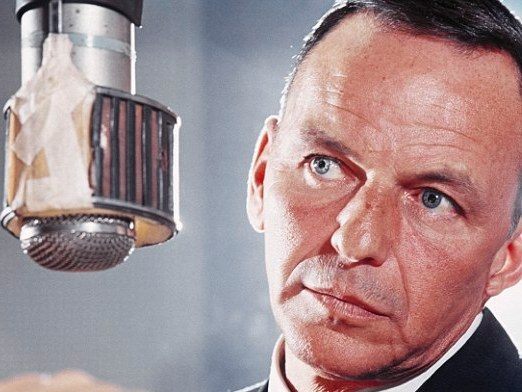Presented in no particular order are, in my humble opinion, Frank Sinatra’s 11 greatest songs. Although I love the Capitol-era, especially the concept albums, nothing topped pushing-50, post-Ava Gardner, Reprise-era Sinatra.
My tribute to “Summer Wind” is here.
Once Upon a Time
Facing his mortality at age 50, Sinatra would win a pile of Grammys for his somber and achingly beautiful concept album, “September of My Years.”
Without ever falling into repetition or bathos, through 13 songs, Sinatra assumes the role of a man looking back and reminiscing on a life well spent, even though it is one filled with romantic loss and poignant regret.
Sinatra is not playing Sinatra here. In 1965, he was at the peak of his talent, raw sexual machismo, and power to shape the culture through his Rat Pack. That would vanish in just two short years and leave Sinatra reeling and feeling left behind, but he was as blindsided by the counterculture as anyone else his age.
Instead, Sinatra plays a character here, a man content to sit on a park bench on an Autumn afternoon kept warm by his memories.
—
—
The Way You Look Tonight
With the help of arranger Nelson Riddle, this might be the most perfect song ever recorded.
—
—
All or Nothing at All
Sinatra re-recorded one of the songs that made “Swoonatra” a young superstar and used Riddle’s magnificent arrangement to turn a story of helpless heartbreak into an act of defiance spoken by a still-vulnerable and honest man, but one with enough life experience to know when he needs to lay down an ultimatum.
Man alive, this thing swings…
—
—
Cycles
This one sneaks up on you. You’re led to believe that you’re listening to the most Sinatra of Sinatra songs — the story of man committed to go on despite his many troubles. But as we make our way through the story, the pain in the storyteller’s voice becomes more pronounced until we learn that his “gal just up and left week, Friday I got fired.”
At this point we wonder how in the world the man will keep his promise to keep going, and that’s when he confesses that he can’t.
He wasn’t lying to us or even fooling himself. He realizes the truth at the same moment we do:
You know it’s almost funny
But things can’t get worse than now
So I’ll keep on tryin’ to sing
But please, just don’t ask me how
—
—
Hello Young Lovers
I’ve heard this song at least 175,000 times, and every time it wrecks me. It’s the closing reveal, the moment when the man stops pretending he’s there to dispense advice to this young couple. Throughout the song he repeatedly mentions a love of his own, but only, we’re led to believe, to validate his words of romantic wisdom,
Finally, he reveals the truth; that he needed just a moment of their time, a friendly ear to share the anguish about this bag of rocks he’s been carrying around … ever since she went away.
—
—
September Song
Believe it or not, I have a tattoo. My wife’s name within a red heart. Flowing around it is a white ribbon with the closing lyrics from “September Song” — nine words that serve as both warning and the best advice you’ll ever get, “And these few precious days, I’ll spend with you.”
—
—
It Had To Be You
The jump from the opening prologue to where the song kicks in… Sublime.
—
—
Luck Be a Lady
Sinatra was furious when he learned he was cast as Nathan Detroit in “Guys and Dolls” (1955) and had lost the Sky Masterson role to “that mumbler” Marlon Brandon. As he always did, though, Sinatra would have his revenge (he didn’t name his label “Reprise” by accident). Just a few years later, Brando’s showstopper, “Luck Be Lady,” would become a Sinatra signature.
Performed live, there was nothing better — not even close:
—
—
Love’s Been Good To Me
Not one of Sinatra’s best known ballads, and if memory serves the album tanked. It’s not so much the lyrics or the story, which tread familiar ground, it’s the vocal performance which adds a depth of emotion no lyricist could conjure up if he lived to be a thousand.
—
—
Doncha’ Go Away Mad
The cavalier and playful attitude towards the subject matter (an unfaithful man asking for another chance) is pure Sinatra. The man’s entire mythology exists in this song, one no other performer could own in the same way.
—
—
I’ve Got You Under My Skin
“Cole Porter by way of Nelson Riddle … Leave some place to go, baby”
There is this particular live performance of this particular song sung by this particular man backed by particular arrangement, and then there’s the rest…
—
—
Follow John Nolte on Twitter @NolteNC

COMMENTS
Please let us know if you're having issues with commenting.